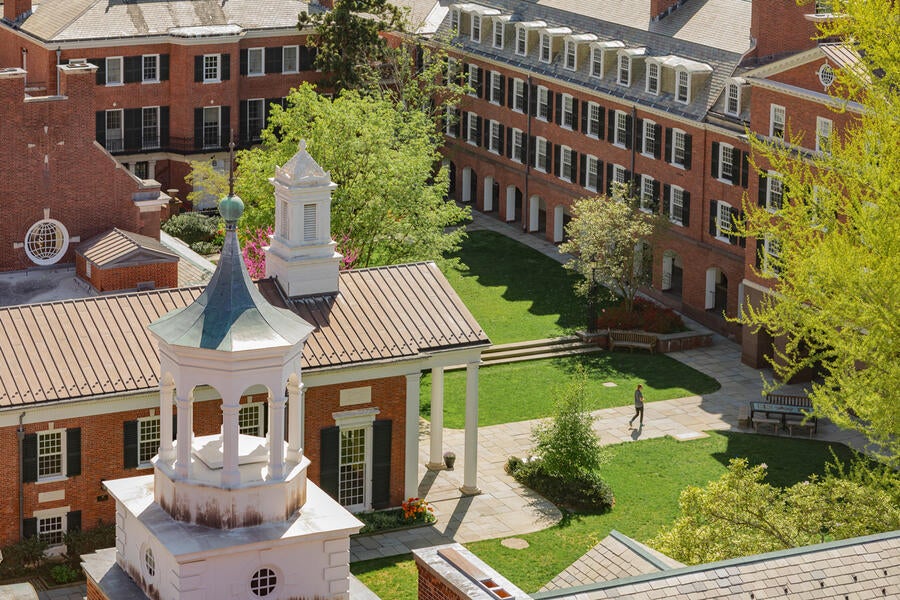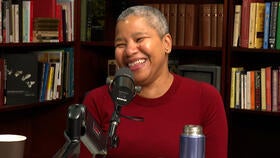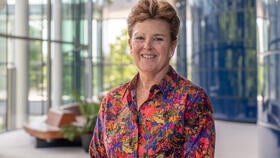
Founded in 2021 through a collaboration between Yale College and Yale Mental Health and Counseling (YMHC), Yale College Community Care (YC3) provides access to mental health care for the university’s undergraduate student population. Staffed by 10 full-time providers, YC3 offers a wellness component and flexible drop-in or virtual options.
Five college care clinicians and five community wellness specialists, all members of Yale staff, are located within or near the residential colleges, and their primary focus is supporting and seeing the students where they live. Students can attend individual or group setting sessions, and YC3 team members assist students considering more formal, ongoing therapy through YMHC.
“This initiative increases access to care and provides flexibility for students seeking an appointment. Through the website, students can read each counselor’s bio and book an in-person or virtual appointment usually within 24 to 48 hours,” said Debra Gregory, associate chief of embedded programming and community engagement at Yale Health.
“These clinicians and wellness specialists are accessible to the students because of their proximity. In addition, our team has a good sense of what is happening in the community and what support the students may need depending on issues happening within or outside of campus,” said Gregory.
The staff of YC3 takes great pride in the structure of the program and their commitment to expanding both mental health and wellness offerings to students. “The blending of mental health and wellness is a beautiful thing,” Nicole Cepeda, a college care clinician and licensed clinical social worker.
“We are constantly thinking about how to change the culture around mental health and help students in myriad ways,” said Corinne Coia, director of Yale College Wellness Programs. “This first-of-its-kind program gets our community thinking and talking about mental health while our staff members provide students direct access to care.”
The wellness component
By the numbers—since inception in 2021
- Almost 10,000 one-on-one appointments have been scheduled.
- The team grew from 4 to 10 to keep up with demand.
- YC3 held 320 programs, workshops, trainings, and events.
- The top three issues students seek help for: sleep issues; academic anxiety; and relationship issues (with friends, family, or roommates)
Community wellness specialists and college care clinicians work in tandem to care for students. While a student may meet with a wellness specialist to discuss roommate or relationship issues, the specialist can refer them to a clinician for more therapeutic support if something more serious arises.
“Wellness specialists are not therapists, but provide the skills and strategies needed to combat an issue. Clinicians do a deep dive in a more therapeutic setting. For example, if sleep is an issue, the wellness specialist will discuss the science behind it and talk about relaxation skills, whereas clinicians will ask if a traumatic event may be inhibiting restful sleep,” said Coia.
Community Wellness Specialists meet with students who want to work on strategies for overall well-being. Students may be experiencing sleeplessness, personal stress, or academic anxiety. The specialists work closely with heads, deans, first-year counselors (FroCos), and peer liaisons as members of the residential college’s support system.
The YC3 team can also connect students with other on-campus resources. “Depending upon the issue, we may put them in touch with their dean or YMHC to provide more long-term counseling. Either way, we will help them figure it out through what we call ‘wrap-around care,’” said Coia.
Normalizing the conversation
Besides one-on-one meetings, the YC3 team provides educational programming based on needs, metrics, and trends. As a result, they host Take-it-easy Tuesdays and Wellness Wednesdays at The Good Life Center. These events include group and creative activities such as introduction to and advanced mindfulness classes, chair yoga, painting, journaling, and the 75-minute silent retreat.
“Each month, we have a theme paired with a fun activity that benefits students’ health and well-being,” said Ricky Belizaire, community wellness specialist. “During the pandemic, many people experienced a lot of isolation, stress, and even feelings of panic. I believe, as a result, there is more conversation around mental health; it’s become more normalized.”






